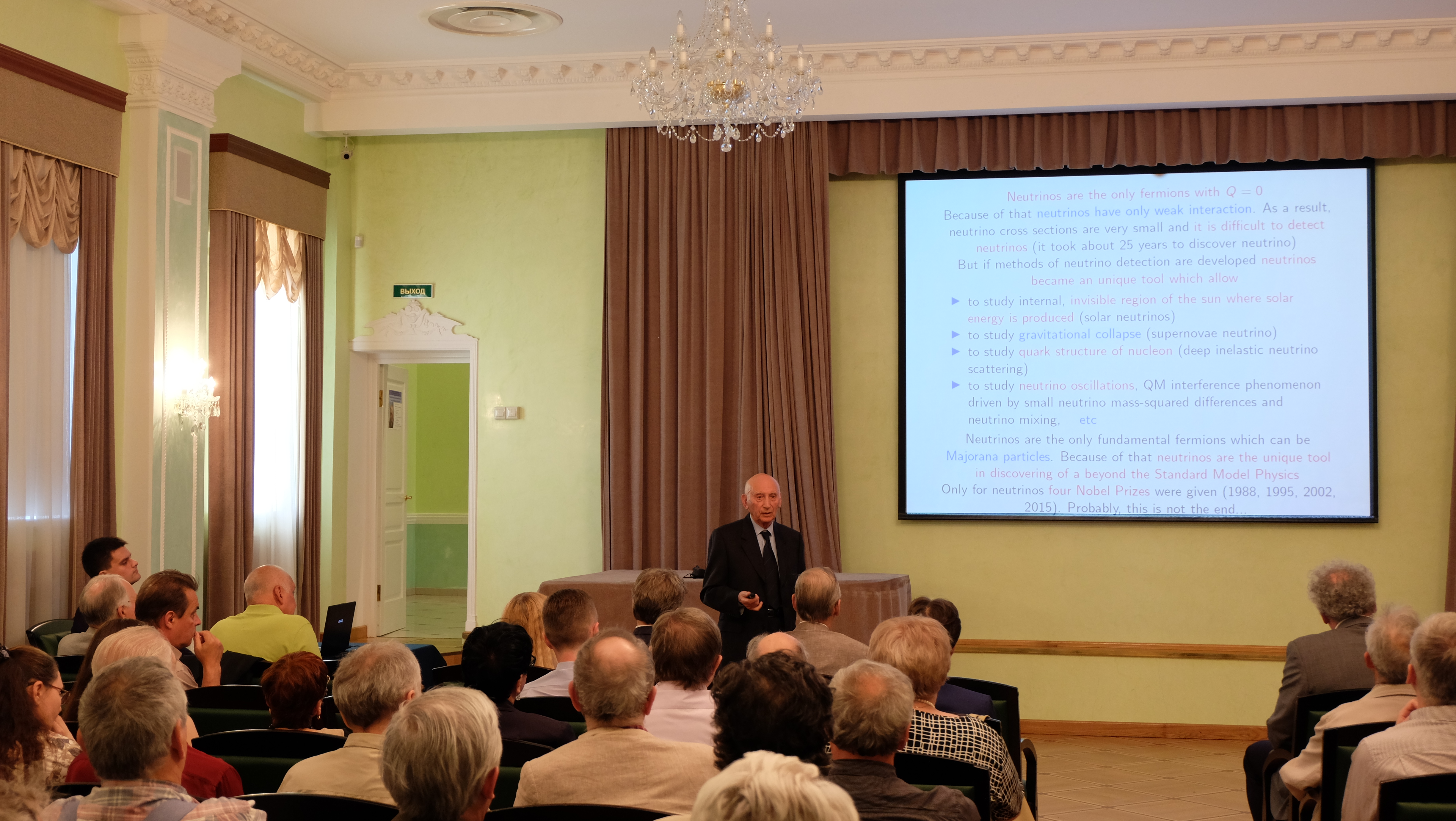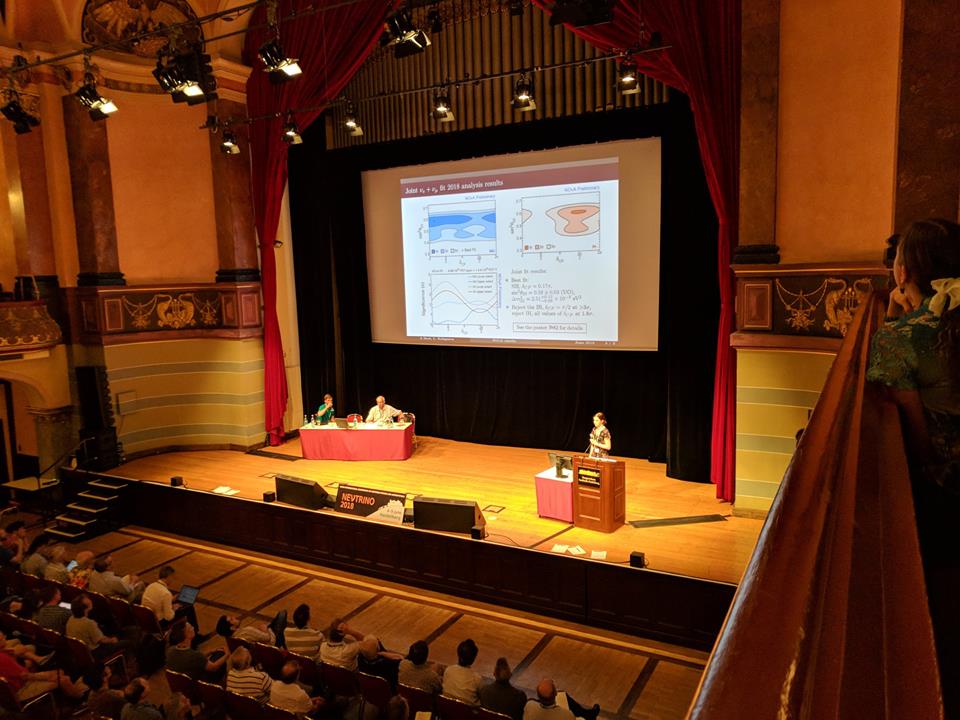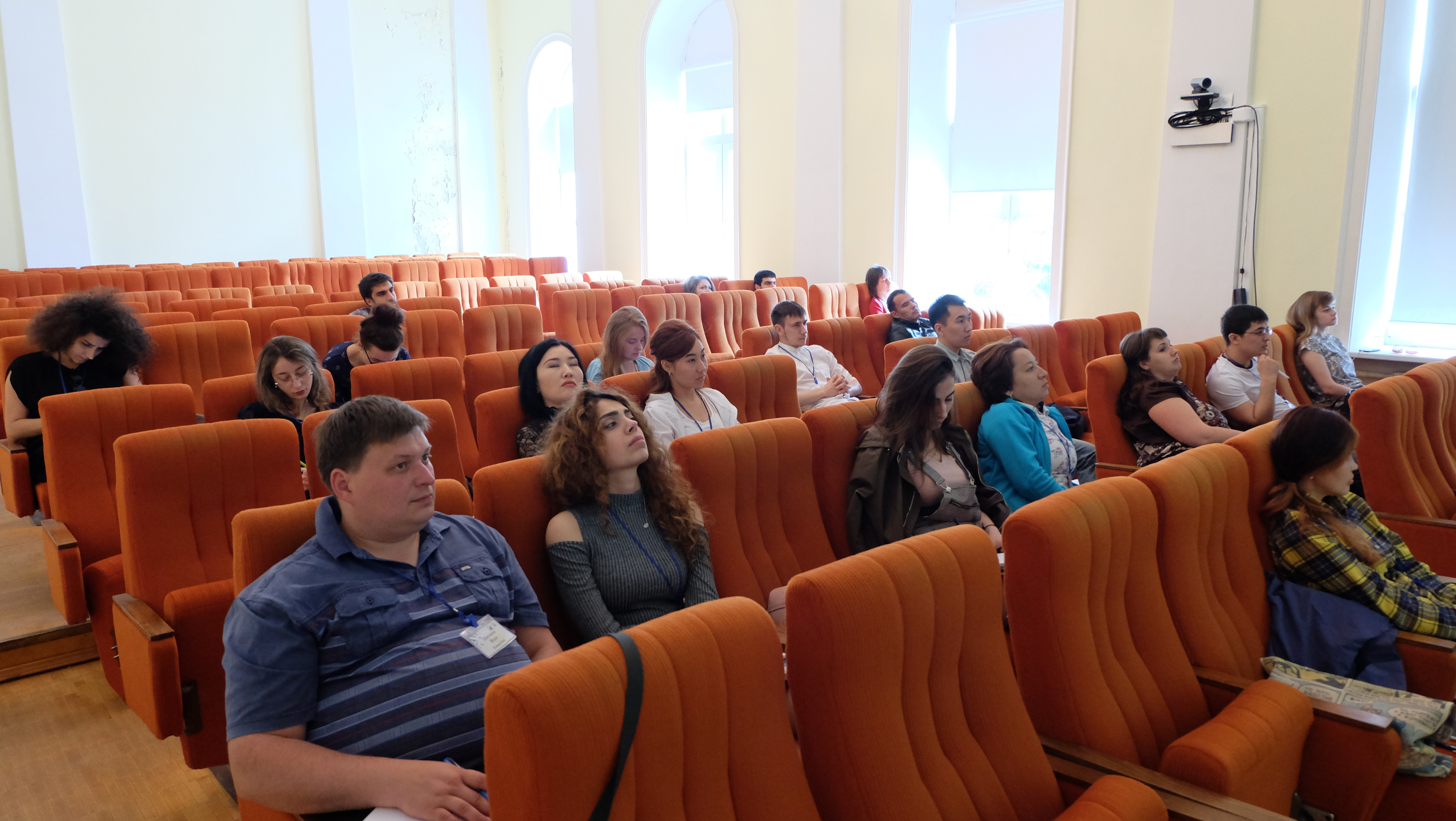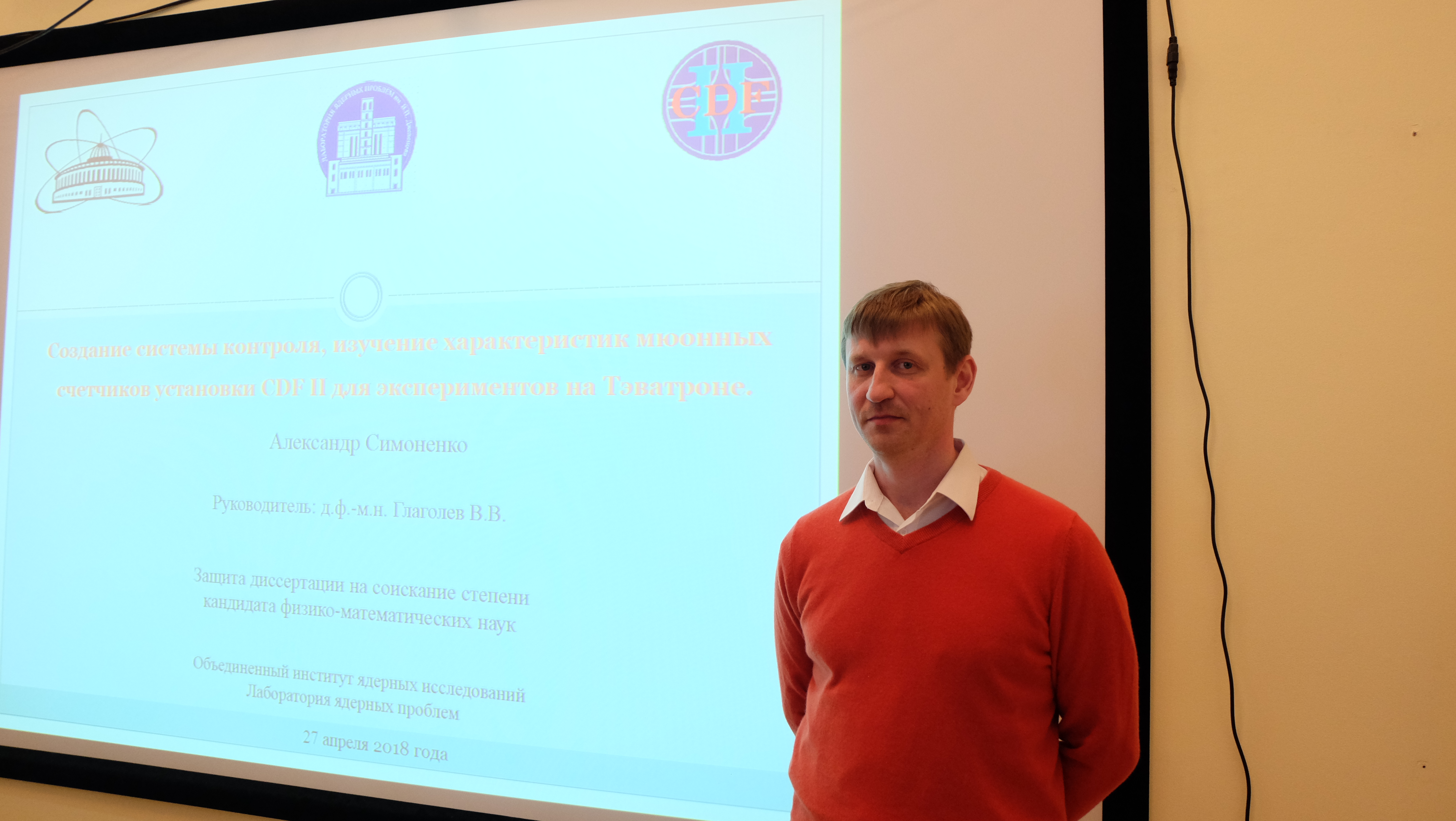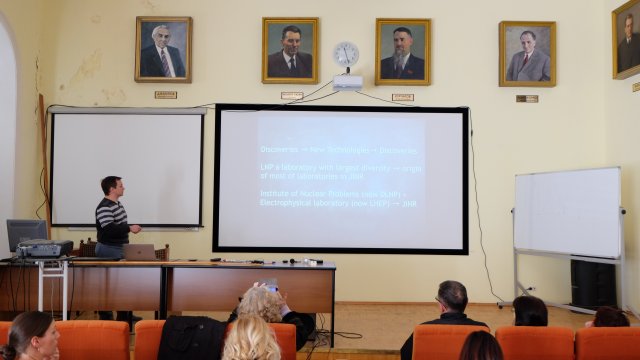News
27.06.2018
The results of the double beta decay investigations were reported. The investigations are carried out with the TGV-2 andObelix low-background HPGe spectrometers at the Modane underground laboratory (France) at a depth of 4800 m water equivalent. The main goal of the measurements with the 32-detector spectrometer TGV-2 is direct detection of the two-neutrino double electron capture in the 106Cd decay.
20.06.2018
Today, on 20 June 2018, a scientific seminar was held at the JINR Scientists’ Club to celebrate the 90th birthday of Prof. S.M. Bilenky. The seminar was organized by the Dzhelepov Laboratory of Nuclear Problems and the Bogolyubov Laboratory of Theoretical Physics.
See more photos here.
20.06.2018
An important result of the hadron programme at COSY (Jülich, Germany) is the isoscalar resonance with the mass of 2380 MeV and width of about 70 MeV observed by the WASA collaboration in the reactionpn→dπ0π0.
07.06.2018
Ludmila Kolupaeva became one of the finalists of the poster session at the international conference Neutrino2018 in Heidelberg. We hearlity congratulate Lyudmila and wish her further victories!
29.05.2018
Vladimir Ivanovich Komarov speaks at his seminar “Dibaryon resonances and ABC effect”.
24.05.2018
Dmitri Semikoz (Directeur de Recherche CNRS, Paris) demonstrated that the standard static model of galactic cosmic rays suggested in 1990th came into conflict with a lot of modern experimental data, including variability measurements of the cosmic ray flux in the Galaxy, magnetic field measurements, and a great deal of anomalies in local observations of cosmic rays.
17.05.2018
The year 2017 marked the 25th anniversary of the world’s largest scientific collaborations, the ATLAS collaboration, established in 1992 for carrying basic research at the Large Hadron Collider at CERN. JINR joined the preparations for the international ATLAS experiment as early as the preliminary R&D stage and became one of its main participants. The film is dedicated to this significant event.
16.05.2018
Nikolai Azaryan speaks about a pilot batch of elliptical single-cell superconducting cavities for the frequency of 1.3 GHz manufactured by hydroforming and electron-beam welding of highly pure niobium. The manufactured cavities feature long stable superconductivity. The measured figure of merit is no less than 10^10. See the full video of the seminar here.
27.04.2018
On 27 April 2018 at the session of the DLNP Dissertation Council Aleksandr Valerievich Simonenko defended the dissertation “Development of a control system and study of characteristics of CDFII muon counters for experiments at the Tevatron” for getting the degree of the Candidate of Sciences in Physics and Mathematics under speciality category 01.04.01: instruments and methods of experimental physics.
We heartily congratulate Aleksandr on the successful defence of the dissertation and wish him new creative achievements!
26.04.2018
A coordinate detector section is built and put into operation at the Colliding Beams Division, DLNP, for constructing coordinate detectors of the bulk MicroMegas type.
19.04.2018
On 19 April 2018, Dmitri Vadimovich Naumov gave the lecture “DLNP Science and Technology Programme” in the DLNP conference hall for the trainees from the JINR Member States within the framework of the 6th International Practical Training “JINR Experience for the Member States and Partner States” (JEMS). The participants came from Vietnam (University of Dalat, Dalat Nuclear Research Centre), Italy (INFN), Cuba (Cuba’s Isotope Center), Russia (North-Ossetian State University, Moscow Institute of Steel and Alloys), and South Africa (IThemba LABS).



